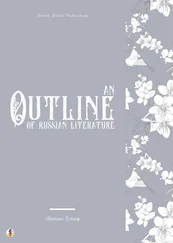The waiter came to take our order, which was a lengthy process, as Angeliki appeared to be discussing each item on the menu in turn, asking numerous questions as she moved down the list which the waiter answered gravely and sometimes lengthily, never becoming the slightest bit impatient. Paniotis sat beside her, rolling his eyes and occasionally remonstrating with the pair of them, which only served to make the process even longer. Finally it seemed to be concluded and the waiter moved heavily and slowly away, but then Angeliki summoned him back with a little intake of breath and a lifting of her finger, having had, apparently, a few afterthoughts. Her doctor had put her on a special diet, she said to me once he had departed for the second time and vanished through the mahogany louvred doors at the far end of the restaurant, since she had become unwell on her return to Greece from Berlin. She had found herself overwhelmed by the most extraordinary lethargy and — it didn’t trouble her to admit it — by sadness, which she had supposed to be a sort of cumulative physical and emotional exhaustion from so many years abroad, and had spent six months more or less incapacitated in bed; months in which she had discovered, she said, that her husband and son could manage without her far better than she might have imagined, so that when she got up again and returned to normal life she found that her role in the household had diminished. Her husband and son had become used to doing much of what had been her work around the house — or to having it left undone, she said — and in fact had evolved new habits of their own, many of which she disliked; but she recognised, at that moment, that she was being given a choice, and that if she wanted to escape her old identity then this was her opportunity. For some women, she said, it would be the realisation of their greatest fear, to discover that they were not needed, but for her it had had the opposite effect. She found, too, that illness had enabled her to view her life, and the people in it, with greater objectivity. She realised that she was not so bound up with them as she had thought, particularly with her son, on whose account she had always, from the moment of his birth, suffered an immense preoccupation, seeing him as uniquely sensitive and vulnerable, to the extent that she was unable — she now realised — to leave him alone even for a minute. Returning to the world after her illness, her son seemed if not quite a stranger to her then less painfully connected to her by every filament. She still loved him, of course, but she no longer saw him and his life as something she needed to resolve into perfection.
‘For many women,’ she said, ‘having a child is their central experience of creativity, and yet the child will never remain a created object; unless,’ she said, ‘the mother’s sacrifice of herself is absolute, which mine never could have been, and which no woman’s ought to be these days. My own mother lived through me in a way that was completely uncritical,’ she said, ‘and the consequence was that I came into adulthood unprepared for life, because nobody saw me as important in the way she did, which was the way I was used to being seen. And then you meet a man who thinks you’re important enough to marry you, so it seems right that you should say yes. But it is when you have a baby that the feeling of importance really returns,’ she said, with growing passion, ‘except that one day you realise that all this — the house, the husband, the child — isn’t importance after all, in fact it is the exact opposite: you have become a slave, obliterated!’ She paused dramatically, her face lifted, her hands flat on the table top amidst the silverware. ‘The only hope,’ she continued more quietly, ‘is to make your child and your husband so important in your own mind that your ego has enough sustenance to stay alive. But in fact,’ she said, ‘as Simone de Beauvoir observes, such a woman is nothing but a parasite, a parasite on her husband, a parasite on her child.’
‘In Berlin,’ she continued after a while, ‘my son attended an expensive private college, paid for by the embassy, where we met a great number of rich and well-connected people. The women were of a kind I had never known before in my life: nearly all of them worked in a profession — doctors, lawyers, accountants — and most of them had a large number of children, five or six apiece, whose lives they supervised with amazing diligence and energy, running their families like successful corporations on top of the demanding careers most of them already had. Not only that, these women were as well groomed and well turned out as could be: they went to the gym every day, ran marathons for charity, were as thin and wiry as greyhounds and always wore the most expensive, elegant clothes, though their sinewy muscular bodies were often curiously sexless. They went to church, baked the cakes for the school fete, chaired the debating society, held dinner parties at which six courses were served, read all the latest novels, attended concerts, played tennis and volleyball at the weekends. One such woman would have been enough,’ she said, ‘but in Berlin I met quantities of them. And the funny thing was, I could never remember their names, or their husbands’ names either: in fact,’ she said, ‘I don’t recall a single one of their faces, or the faces of any of their families, except for the face of one child, a boy of about my son’s age, who was terribly disabled and went around in a kind of motorised cart which had a shelf for his chin to rest on, so that his head — which otherwise I suppose would have fallen forward on to his chest — was always propped up.’ She paused, troubled, as though seeing the boy’s face before her once more. ‘I don’t remember his mother’, she continued, ‘ever complaining about her lot: on the contrary, she was a tireless fundraiser for charities supporting his condition, on top of all the other things she had to do.
‘Sometimes,’ she said, ‘I almost wonder whether the exhaustion I felt when we returned from Berlin was in fact the collective exhaustion of these women, which they refused to feel themselves and so had passed on to me. One always seemed to see them running: they ran everywhere, to work and back again, to the supermarket, in groups around the park — talking together as easily as if they were standing still — and if they had to stop for a traffic light they would keep running on the spot in their enormous white shoes until it changed and they could progress again. The rest of the time they wore flat shoes with rubber soles, supremely practical and supremely ugly. Their shoes were the only inelegant thing about them,’ she said, ‘yet I felt they were the key to the whole mystery of their nature, for they were the shoes of a woman without vanity.
‘I myself,’ she continued, extending her silvered foot out from beneath the table, ‘developed a weakness for delicate shoes when we returned to Greece. Perhaps it was because I had begun to see the virtues of standing still. And for the character in my novel, shoes like these represent something forbidden. They are the sort of thing she would never wear. Moreover, when she does see women wearing such shoes, it makes her feel sad. She has believed, until now, that this was because she found such women pitiful, but in fact when she thinks about it honestly it is because she feels excluded or disbarred from the concept of womanhood the shoes represent. She feels, almost, as if she isn’t a woman at all. But if she isn’t a woman, what is she? She is experiencing a crisis of femininity that is also a creative crisis, yet she has always sought to separate the two things in the belief that they were mutually exclusive, that the one disqualified the other. She looks out of the window of her apartment at the women running in the park, always running, and she asks herself whether they are running towards something or away from it. If she looks long enough she sees that they are simply running around in circles.’
Читать дальше












